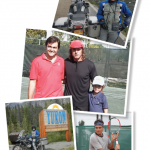As we all know, our society accords special status and recognition to its athletes. After all, they are called heroes and treated as royalty, as if pitching a fast ball or hitting a jump shot represents greater genius or a bigger gift from the gods than the myriad other activities which supposedly lesser mortals pursue. Those activities demand as much practice, tenaciousness, and spirit, although they are usually pursued with anonymity and sometimes paltry remuneration. Such activities, I may add, include taking care of sick people with lupus as well as conducting basic, clinical, and translational research.
Nevertheless, I could not help but be impressed by Dr. M.’s past. The ethos of sports has been etched into me since I was child. I grew up sitting in the stands at Yankee Stadium to see Mickey Mantle blast homers into the upper deck, watching former basketball players Bob Cousy and Bill Russell on TV winning championships in the smoke-filled Boston Garden, and listening on the radio to the Muhammad Ali fight against Sonny Liston, the announcer shrieking at the early knockout. I cannot help but accept society’s judgment that athletes are special people who should be exalted.
Although Dr. M. had a very promising tennis career—top 10 in the state is not exactly chopped liver—she decided that there was more to life than chasing yellow balls on the hard court and blasting them back with a powerful whack. Dr. M. put away her racket, perhaps in the dark confines of her bedroom closet or amidst garden supplies and old bicycles in the garage. She then went to medical school and is working her way steadily up the academic ladder.
Knowing Dr. M.’s scholarship and research on new treatments for lupus, I am very glad that she became a rheumatologist instead a tennis pro at the local club, the kind of person who has scars on shoulders and knees from surgeries to fix rips and tears, skin turned leathery in the sun, and long days spent teaching 10-year-olds how to hit the ball with more spin.
Dr. M. was modest about her athletic accomplishments and graciously said that, if we attend another lupus meeting together, I should bring my racket so that we can volley a bit or even play a few games. Given my current shape, any record of our match would more likely show up on “America’s Funniest Home Videos” than ESPN.


